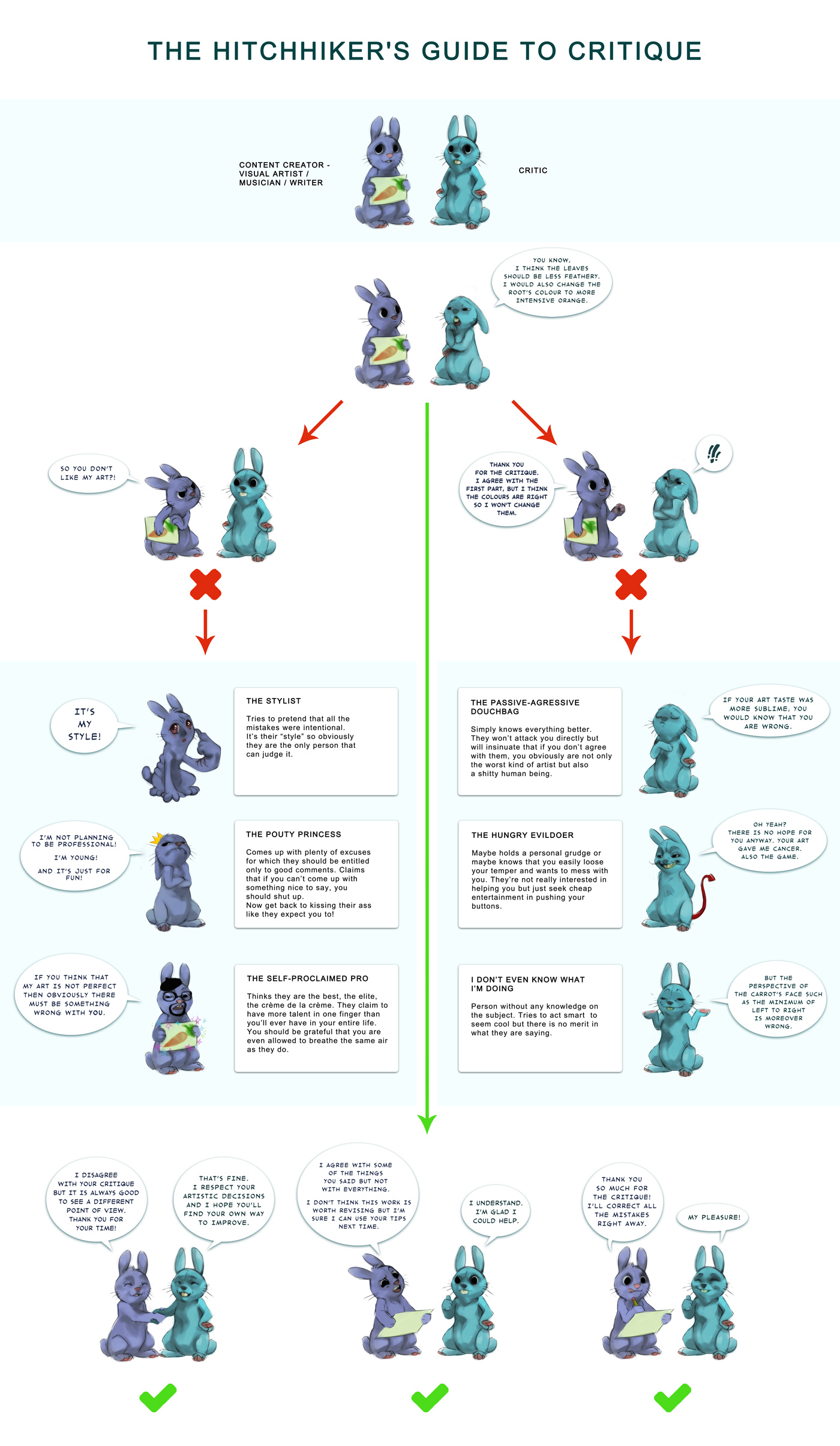I think this guide is more of an outline of how to have a productive discussion about a piece of art in a critic/artist context. The middle section shines a light on particular archetypes that inexperienced critics/artists tend to default to, and also explains why they can be problematic. The last section shows that it's entirely up to the artist how much they take away from a critique, and that it has to be their decision to act on criticism.
Acting on criticism doesn't inherently improve your work. Artists want to get a particular message out into the world, and they need feedback to understand how their message is being interpreted. Often times, what gets made doesn't achieve what the artist intends. A (good) critic's aim is not only to provide an outside perspective on how the artist's work makes them feel, but also to understand what the intended feeling is, and identify what parts of the work aren't helping in achieving the artist's goal.
The critic can often have a false idea of what the artist's goal is. They aim to provide feedback that would bring the work further towards what they think the work is supposed to be. However, if the critic's idea and the artist's idea are disparate enough, their feedback can be effectively useless.
If the artist chooses to make changes to their work based on this "bad" feedback, it can bring their work further away from its intended purpose. This "bad" feedback can also change the artist's mind on what their intended goal should be, in which case the feedback can become useful again. The artist needs to try and understand the critic's goal in the same way that the critic tries to understand the artist's goal.
The idea of "you can't please everyone" says that you can choose not to act on feedback. This is often taken to mean that you can choose not to think about feedback, but thinking and acting are not the same.







